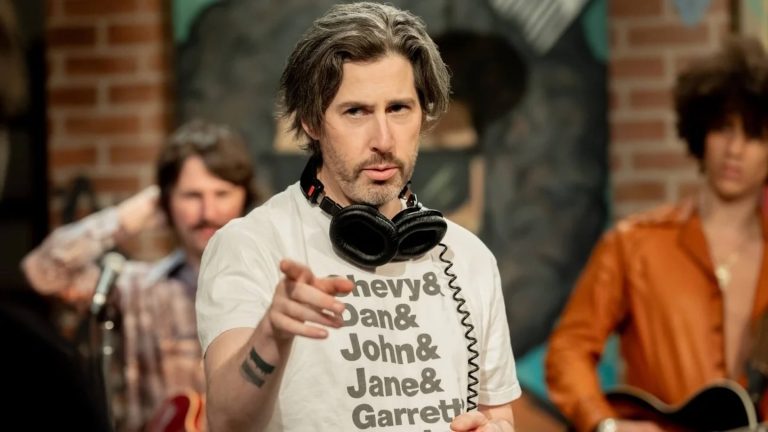
Okay, before we start, here's a warm-up exercise for you. Pitch your script in the form of:
a) a single question that
b) does NOT mention any specific elements of the plot (yours or any others).
Meaning, not “Who killed the Mayor?”, nor “What would a combination of Love, Actually and Aliens be like?” Here are some valid examples:
“Is there a right way to raise a child?”
“What would you sacrifice your life for?”
“Do two wrongs ever make a right?”
Okay. Could you do it?
Advice to those who could: Good! Now study that result long and hard, because that's what we in the trade refer to as, "What Your Script Is Really About." Aka: the theme of the script.
Advice to those who couldn't: Well stop and ask yourself, if my script isn't asking a question, what IS it doing? Is it just a declarative sentence?
Not being glib here, that's really what some scripts are, particularly if they're based on true stories or biographies; their sole purpose is to dramatize an event or a person's life, to simply say, “Here is some stuff that happened.” Which has yielded a plentiful amount of films over the years, and some of them are even good, but what any reader worth his salt will tell you is that it's a weak choice. You want your script to ask a question, for the same reason that you'd probably prefer the company of a date who asks you questions moreso than one who simply makes flat assertions. Because questions engage you. Because they show an interest in your thoughts. Because they tell you that what you believe matters.
In short: Your script should have a compelling, thought-provoking theme, and ideally one that it illustrates by way of its story, its characters, and the choices they make.
>> Related post: Ask the Tough Questions, Write Better Screenplays
So that said... Let's talk about theme. Where characters, dialogue, and plot are all concrete, easily understood elements to approach, theme can be a fairly elusive concept for new writers, mainly because the term is sort of vague and has other meanings beyond the realm of drama. I mean, the “theme” of a costume party is costumes, so wouldn't football be the “theme” of a football movie? But where football might be the subject of, say, The Longest Yard (either version, Sandler's or the good one), its theme has nothing to do with football, and if you doubt that, ask yourself, could the movie have been pretty much the same if it had been about baseball?

Its theme, using the above exercise could be stated as “Do the needs of the many outweigh the needs of the few?” And yes indeedy, you don't need to tell me, that's a very familiar-sounding theme; it's the theme of pretty much every episode of 24, and it was familiar long before Leonard Nimoy uttered it in (SPOILER ALERT) his final moments in Wrath of Khan. (Oh, calm down, people. He comes back!)
Know why it's so familiar? Because it's a great theme, a timeless, universal, easily dramatized theme, frequently illustrated by way of a character sacrificing his career, his worldly possessions, his freedom or even his life. Watch enough movies, and you'll see the Great Themes come up again and again: Does love conquer all? What should we do in the face of adversity? Is this a godless universe, and if so, how are we to act? Is fame and fortune worth the cost of one's soul? Is the physical joy of a momentary infidelity worth the betrayal of one's true love? How can we best find contentment in this life?
Again: They're compelling because they ask questions, important questions that challenge you and stay with you long after you leave the theater or turn the TV off.
And THAT is what we're talking about when we're talking about your theme: What is your script really about? It might have the most hair-raising action sequences ever committed to paper, but what do they all add up to? What are you trying to SAY about anything? Put it this way: Which sparks your interest more: A boxer getting into a climactic boxing match because he is a great boxer and wants to be the champion, or a boxer who has reluctantly decided to box because his wife needs the prize money, even though his doctor has told him that if he ever boxes again, he'll die? (Hint: Only ONE of them, though admittedly hokey, has a compelling theme.)
>> Related post: How to Write a Screenplay with HEART
And to reiterate: It's not that a script without a coherent theme is necessarily a failure; some movies simply want to blow stuff up, or gross you out or make you giggle, or relay facts to you for 90 minutes, and that's fine. But if you want to elicit more than a shrug or an approving nod from your readers, if you want them to want to meet you and discuss the script with you because it made them think and ponder and ruminate and feel smarter and richer for having read it, then you want a theme, a strong, memorable, easily digestible theme, one illustrated by a crucial choice made by your character(s).
Or to put it another way: Don't be the boring date who talks about himself the whole time. Be the cool date who gets you to talk about yourself the whole time. Be the date you'd want to see again.
Be the date with a THEME.
This article was written by Ashley Scott Meyers who is a screenwriter and podcaster over at SellingYourScreenplay.com. He has sold and optioned dozens of scripts over the last two decades. Through SYS he runs a screenplay analysis service, provides paid job leads to screenwriters, and helps screenwriters connect with producers who are looking for material.
Get Our Screenwriting Newsletter!
Get weekly writing inspiration delivered to your inbox - including industry news, popular articles, and more!


























